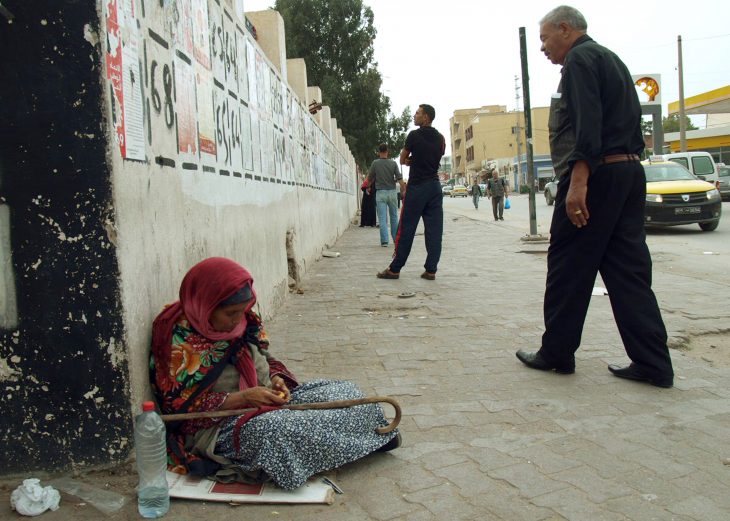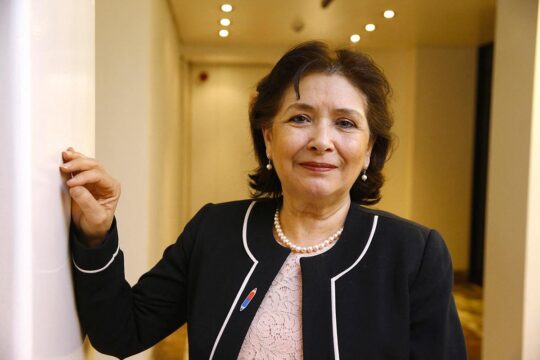On June 16, 2015, six months after Tunisia’s Truth and Dignity Commission opened its doors to victims’ complaints, the Commission received a rather unique case file. It comes from Kasserine, a governorate of 430,000 inhabitants in west-central Tunisia which is also one of the poorest in the country. The request seeks to bring in the notion of a “victimized region”. It was filed by the Tunisian Forum for Economic and Social Rights (FTDES), a Tunisian civil society organization that is active on the ground, with the support of Lawyers without Borders (ASF).
“Since the start of the transitional justice process, everyone has been focused on individual reparations,” says FTDES director Alaa Talbi. “Through this request we want to redirect the debate and show how a whole region was systematically marginalized by the former regime.”
An idea inspired by the revolution
The idea of a region as a victim seems in any case to fit with the Tunisian transitional justice law passed in December 2013. Article 10 of this law extends the definition of victim to “any region that has suffered organized marginalization or exclusion”. The Tunisian provision is unique in terms of reconstructive justice. It is an idea inspired by the reality of the revolution of December 17, 2010 - January 14 2011. The revolution started from the “interior” with demands and slogans brandished by populations that had been suffering for too long from unemployment, marginalization, discrimination in terms of development, economic and social inequality, especially in comparison with the much more privileged coastal regions.
“The strong centralization of power that excluded the regions from really participating in decision making, favouritism with regard to investments, bad governance, nepotism and corruption all worked together as aggravating factors ensuring marginalization or organized exclusion of certain regions including Kasserine,” says the report presented to the Commission on June 16 by the two organizations.
But how do you define the “marginalization and organized exclusion” of a region in order to determine reparations? This is not specified by the law.
Alaa Talbi says human development indicators for Kasserine, which are among the lowest in Tunisia, can be used to demonstrate the extent to which this region lags behind the coastal regions in particular. It has a high unemployment rate (26.2% in 2012 compared with a national average of 17.6 %), a low density of small and medium-sized enterprises (0.2 compared with 3.1 in Tunis), a constant lack of access to drinking water, health and public hygiene services and good roads. All these factors push the most qualified workers to leave the region, further depriving it of resources.
To stop it happening again
The Truth and Dignity Commission headed by Sihem Bensedrine has accepted the request to have Kasserine recognized as a “victimized region”. In their request, the Tunisian Forum for Economic and Social Rights and Lawyers without Borders invite the Commission to recommend measures to the authorities to tackle the causes of the marginalization from which Kasserine is still suffering. The goal is to ensure that such a situation does not happen again. According to a report by the German development agency GIZ, financial reparations for Kasserine could cost nearly a quarter of the current State budget.
“That is not the solution we are seeking,” says Alaa Talbi. “Rather, we want to encourage the government to revise its economic model, because Kasserine is not the only victimized region in Tunisia. Sidi Bouzid, Gafsa, Siliana, Jendouba and even some of the disadvantaged suburbs of big towns fall into this category. We think transitional justice has a role to play in the emergence of a new system of development based on best use of each region’s resources and on human rights.”
The FTDES, which presents itself as a “generator of proposals”, has already set up several working groups to work on a new economic model for post-revolutionary Tunisia, bringing together national and international experts. Their results are expected to be announced at an international conference in April 2016.






